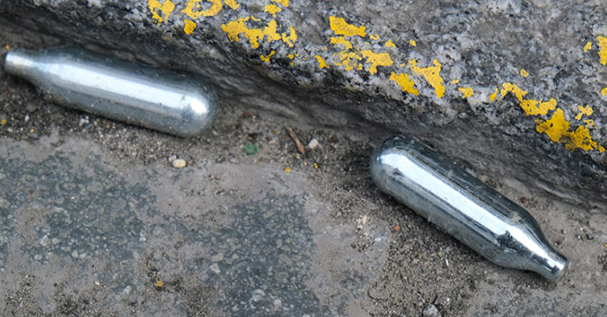OTC Meds which may be misused
Over the counter medicines commonly reported to be subject to misuse include analgesics, most commonly the opioid containing analgesics, laxatives, sedative antihistamines, and decongestants. There are additional products available within community pharmacies that can be misused including solvents or aerosols, certain food, or vitamin substances and also the oral emergency contraceptive or morning after pill. Customers may also be misusing more than one medicine, for example using laxatives to combat the side effects of opioid analgesics, or simply to experience the effect of more than one drug.

Decongestants such as pseudoephedrine or ephedrine
Decongestants are commonly included in OTC cough and cold remedies. These medicines have a weak amphetamine like stimulant effect which can lead to a euphoric or mood lifting effect. They are also claimed to cause weight loss and increase athletic stamina and performance. This has resulted in pseudoephedrine and ephedrine being included in the International Olympic Committee’s list of banned substances. Pseudoephedrine and ephedrine are also used in the illicit manufacturing process of methylamphetamine (crystal meth). This has led to legal restrictions on the maximum quantity of these drugs that can be sold. It is now illegal to sell more than 720mg of pseudoephedrine, equivalent to a pack of twelve 60mg tablets, or more than 180mg ephedrine. Products containing ephedrine and pseudoephedrine must not be sold together in a single transaction.
Opioid containing products
Codeine is the most commonly used opioid medicine included in over-the-counter products. Dihydrocodeine and morphine are both also available in low doses in some over the counter medicines. Over the counter opioid products include analgesics combining codeine or dihydrocodeine with aspirin, ibuprofen, or paracetamol. Also, codeine linctus or proprietary cough mixtures containing codeine and traditional pharmacy remedies such as kaolin and morphine or Gees linctus. Codeine is probably the most notable medicine abused over the counter. The abuse potential of codeine is largely due to the body’s metabolic processes converting it to morphine. Codeine can produce systemic effects of relaxation, sleepiness, and a general feeling of well-being but its use can also lead to nausea, constipation, sweating, itching and mood swings. Codeine and dihydrocodeine containing products are now labelled with warnings about the possibility of addiction and advice to restrict use to a maximum of three days. Customers who make repeat requests for codeine or dihydrocodeine containing analgesics or are taking the products for more than three days without speaking to their GP should be referred to the pharmacist. As well as misuse there is also the risk of overdose for example taking too many OTC Co-Codamol 8 / 500 e.g. "Solpadeine" could not just result in side effects from the Codeine but overdosing from the Paracetamol!
Non-opioid analgesics
Customers who suffer with recurrent headaches and take frequent doses of analgesics may become dependent upon them and suffer from 'medication overuse headache'. This condition is associated with drug induced headaches. Customers suspected to be suffering from this form of headache must be referred to their GP as the only treatment is to stop all pain killers. This is likely to cause rebound headaches that are more intense than the original headache and can last for up to ten days. Effective use of over-the-counter protocols such as WWHAM will ensure you can advise customers against using non-opioid analgesics excessively or they can be referred to the pharmacist.
Dextromethorphan
Dextromethorphan was developed as a non-opiate remedy for a dry irritating cough. Dextromethorphan can produce mind altering effects associated with intense feelings of well-being, elation and happiness. These effects are largely responsible for its abuse. Products that contain dextromethorphan include Benylin Dry Cough Original and Night Syrup, Covonia Original Bronchial Balsam, Covonia Night Time Formula, Covonia Hot Dose Cough and Cold, Night Nurse capsules and liquid and Robitussin Dry Cough.
Laxatives
Laxatives are commonly purchased over the counter for effective short-term treatment of constipation. Customers suffering from eating disorders such as bulimia or anorexia nervosa may take large doses of stimulant laxatives such as senna or bisacodyl to reduce food absorption and consequent weight gain. Even customers without bulimia or anorexia nervosa but desperate to lose weight will resort to drastic measures including misuse of laxatives. Staff should be vigilant for customers frequently purchasing large quantities of laxatives, especially where the customer appears to be very thin or underweight. Some customers may also abuse laxatives because they suffer with a bowel obsession where they believe they must go to the toilet regularly at the same time of day or produce stools of a specific predetermined appearance. These customers are likely to be older than an eating disorder customer and less likely to be thin or underweight in appearance. Stimulant laxatives can also be purchased by customers abusing other medicines such as opioid analgesics, to counter the side effects of these medicines. Customers purchasing large quantities or making repeat purchases of laxatives should be referred to the pharmacist.
Sedative antihistamines
Sedative antihistamines are commonly found in OTC medicines for the treatment of allergic conditions, cough and cold remedies, sleep aids and sometimes in travel sickness prevention. The most commonly misused antihistamines are cyclizine, dimenhydrinate and diphenhydramine. Cyclizine, which is found in some travel sickness prevention treatments, is now rarely supplied over the counter because of its potential for misuse. Dimenhydrinate and diphenhydramine can both produce symptoms of euphoria or sensations of wellbeing when misused; they can also lead to sedation. Products containing diphenhydramine include Nytol Original, Nytol One a Night and several generic and own brand sleep aid products. It is also included in Covonia Night time, Benylin Chesty Cough Original, Benylin Dry Cough Original, Benylin 4 Flu tablets, Benylin Day and Night tablets. Other proprietary and own brand products also contain these ingredients. Please check the products you stock to ensure you are aware of which products may be misused.
Emergency contraceptive or morning after pill
EHC can be subject to abuse when used repeatedly in young people. Requests for emergency contraception should always be referred to the pharmacist. Staff should be vigilant for repeat requests for use in young people, especially where they are accompanied by older adults, as this may be an indicator of a safeguarding issue. If you have any concerns, you should always discuss them with the pharmacist. Further information on safeguarding can be found in the Counter Excellence module Safeguarding Children and Vulnerable Adults.
Citric or ascorbic acid
These acids are used by heroin, crack, or amphetamine users to convert base drugs into soluble forms that can be injected. Use of these acids can result in burns at the site of injection. Sachets of citric acid are frequently supplied as part of needle exchange schemes. Customers asking for sachets of either citric or ascorbic acid should be referred to the pharmacist or the nearest pharmacy offering a needle exchange scheme. Remember that it is always better for injecting drug misusers to have safe supplies of needles and sundry items from a needle exchange scheme rather than sharing or reusing equipment.
Solvents, aerosols, and glues
These all contain volatile chemicals which when inhaled have a depressant effect on the body producing a similar effect to being drunk. This can lead to mood swings, aggressive behaviour, vomiting and blackouts. People who inhale solvents may develop a red rash around their mouth and nose. Solvent abuse is a serious issue and can cause cardiac arrest. Staff should be alert for customers purchasing large quantities or making repeated purchases of aerosols or solvent based products including aerosol-based toiletries, nail varnish remover, artificial nail glue or pain relieving sprays.
Nitrous oxide (Laughing gas)
Nitrous oxide is a colourless gas that is inhaled and is commonly used as a painkiller in medicine and dentistry. When mixed with oxygen, it is known as "gas and air" or "Laughing gas", which can help reduce pain during childbirth.
Laughing gas was the lockdown high of choice for many young people as inhaling nitrous oxide produces a rapid and short-lived rush of euphoria, happiness or excitement. Other effects can include dissociation of the mind from the body (a sense of floating), changes in thoughts, feelings and perceptions and visual and auditory hallucinations (more likely to occur when mixed with other drugs).
It is also used in hospitality, restaurants, and catering. For example, in the production of whipped cream. Many recreational users bought the gas in small metal canisters, released it into a balloon and then inhaled the contents. As of November 2023, the government made possession of nitrous oxide, or laughing gas, a criminal offence in England and Wales and it sale was banned accept for its licensed use. It also became a Class C drug. See attached. Nitrous Oxide Ban. Prior to the ban it was often sold routinely both on the internet and even from the high street although admittedly not frequently in the community pharmacy. Ever seen these little cannisters lying around on the pavement?
These are Nitrous oxide cannisters which were probably misused!

